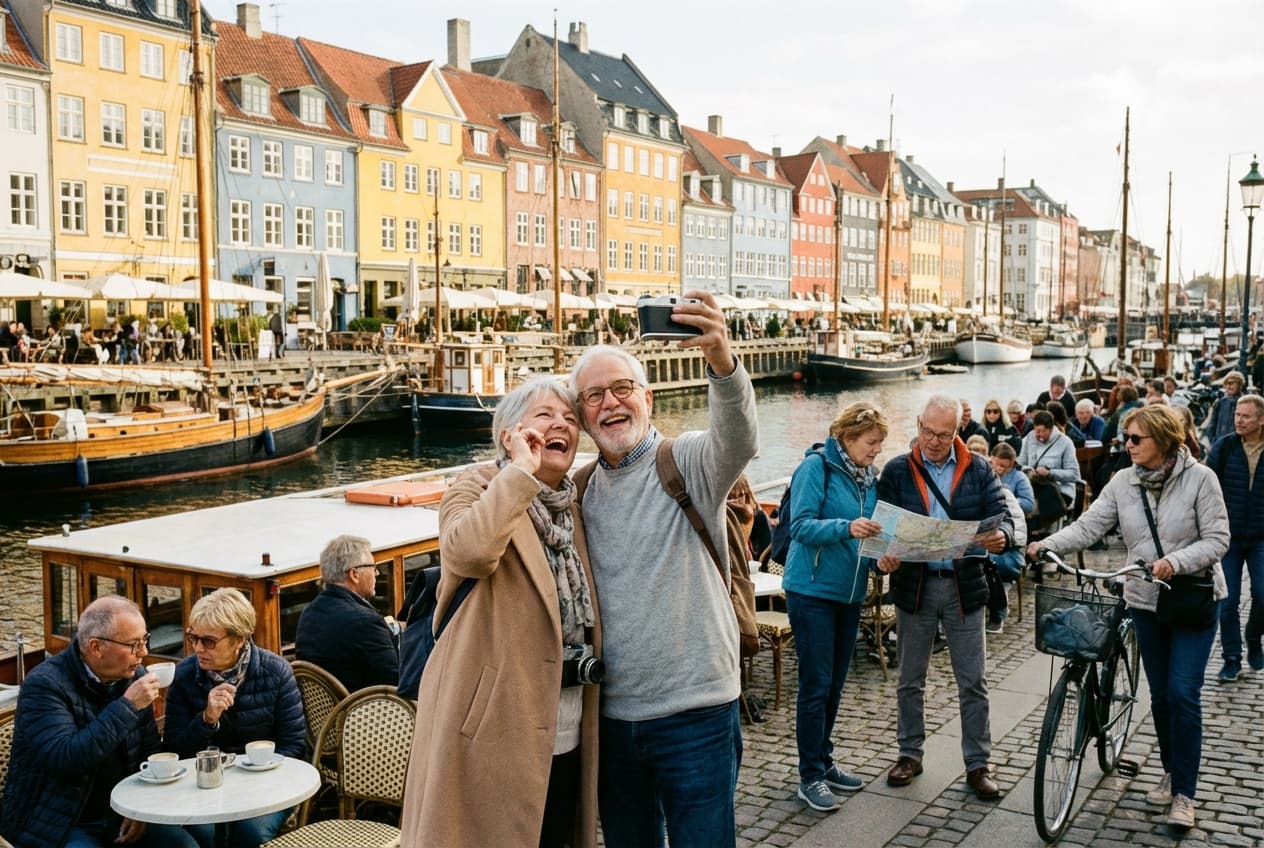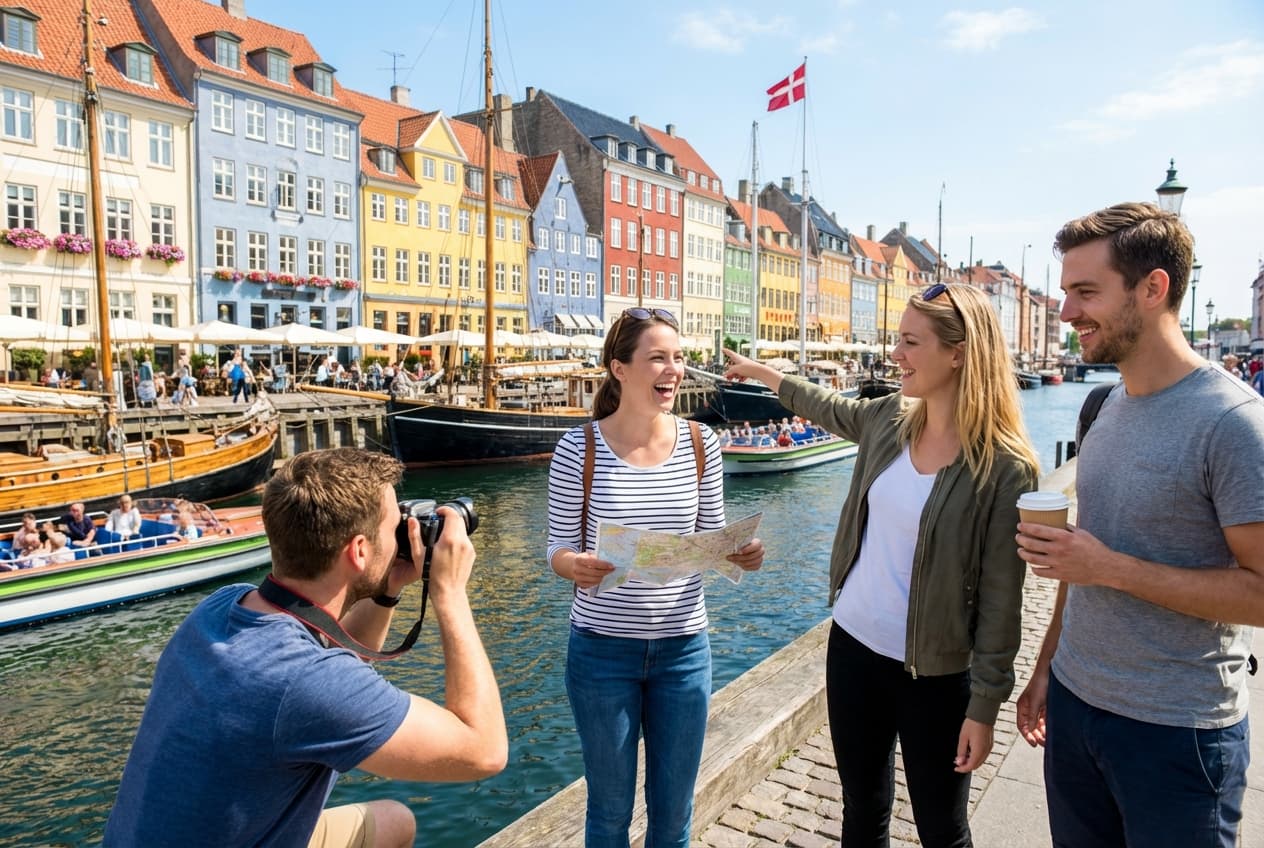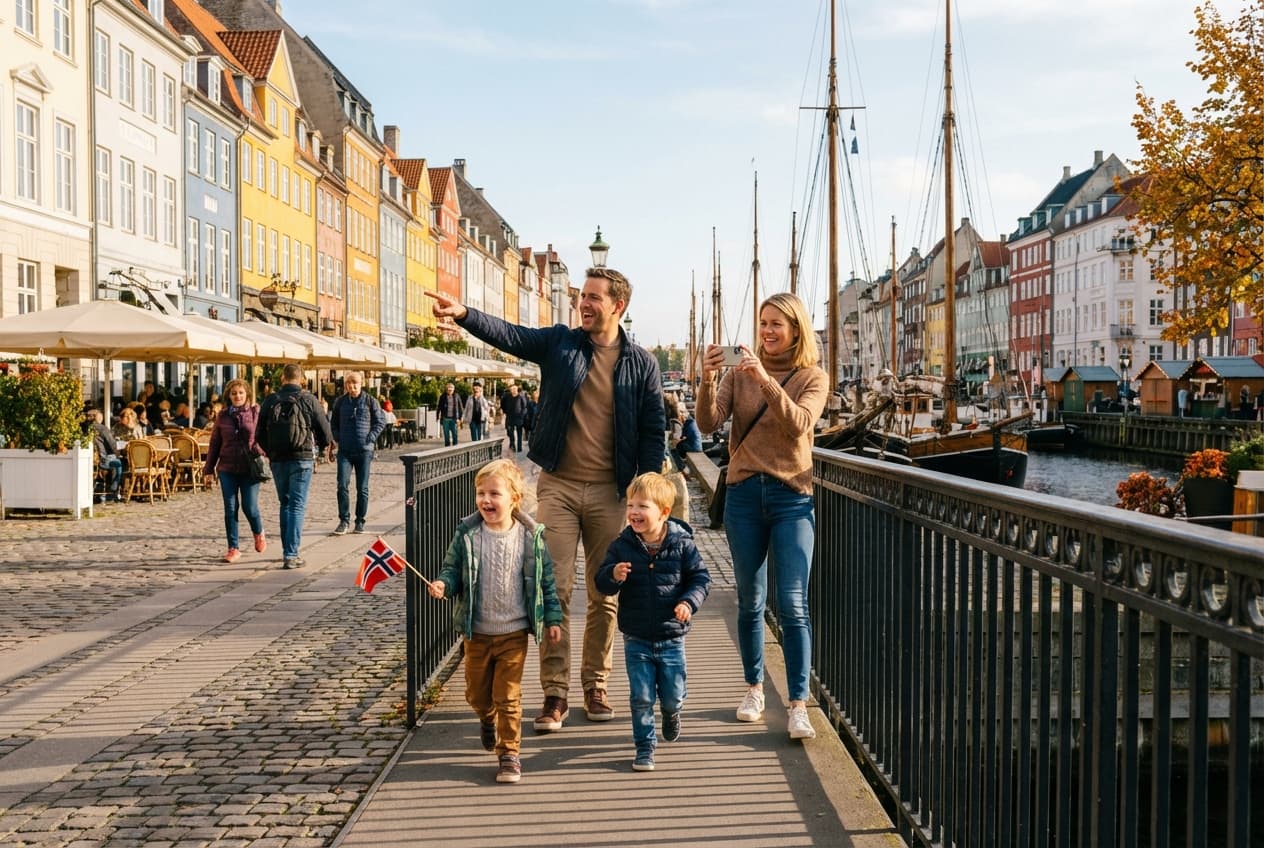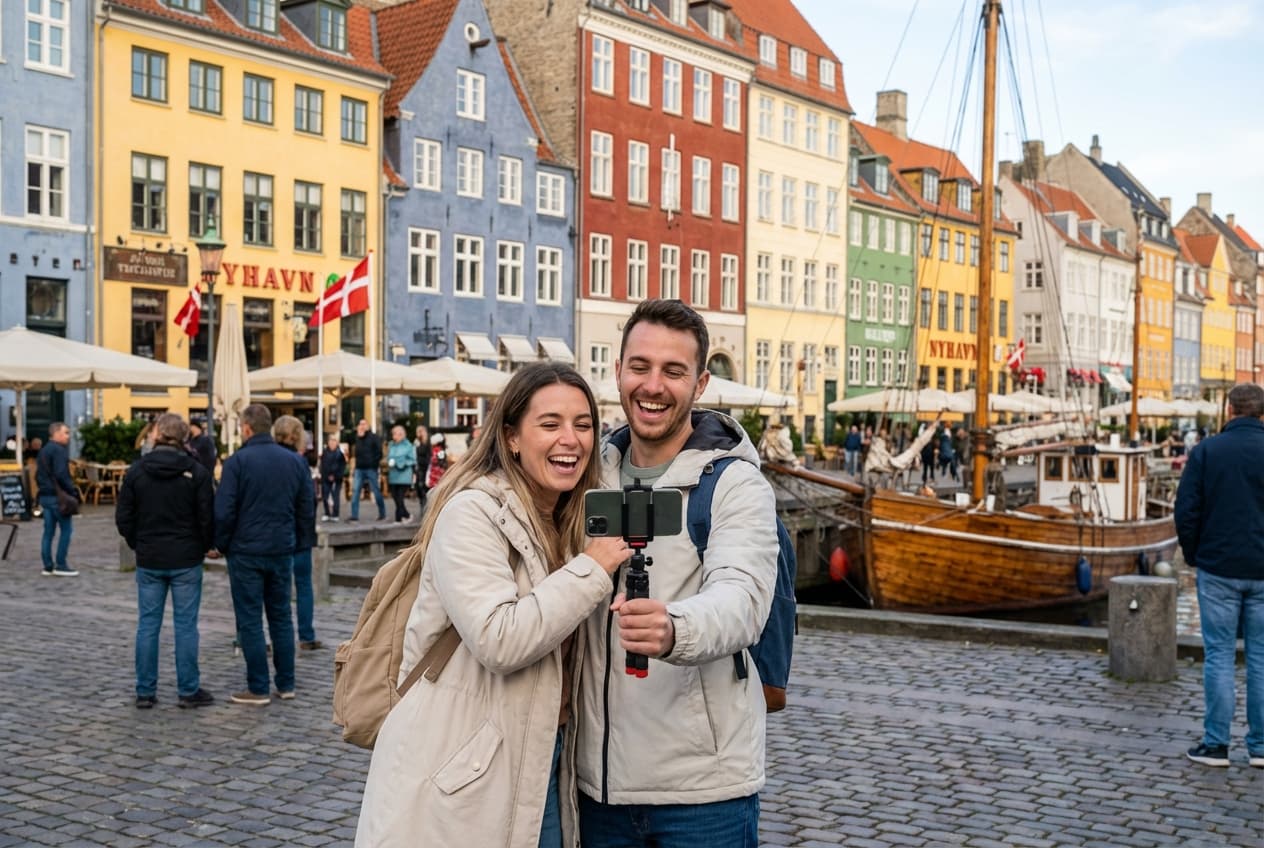Copenhagen in 3 Days for Design Enthusiasts - Designmuseum Danmark — core New Nordic design collection and DesignLab workshop
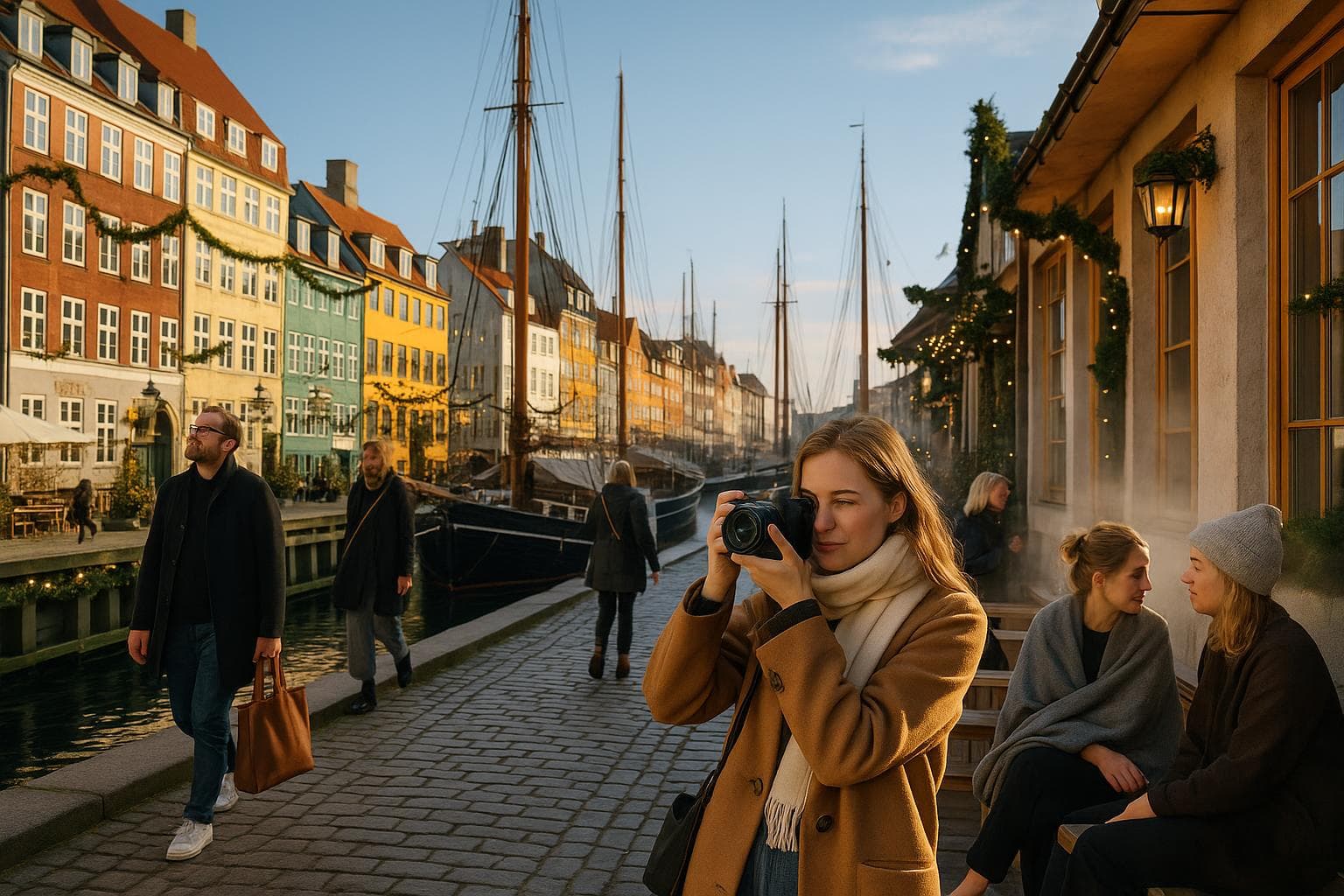
A sleek, cozy 3‑day itinerary for design enthusiasts focused on studios, showrooms, architecture and winter light — with hands‑on moments and a restorative sauna on the water. Emphasis on Danish craft, contemporary galleries and authentic local makers.
Highlights
- Designmuseum Danmark — core New Nordic design collection and DesignLab workshop
- Louisiana Museum of Modern Art — sculpture park, winter light across Øresund
- Copenhagen Contemporary — large‑scale installation art in a converted industrial hall
- Illums Bolighus & Paustian — Icelandic, Danish and Scandinavian showrooms
- CopenHot floating sauna — warm, reflective end to a design‑dense day
Itinerary
Day 1
Introductory loop through central Copenhagen’s concentrated design institutions and showrooms, finishing with an on‑water sauna to feel the winter light on the harbour.
Designmuseum Danmark — core New‑Nordic collection
Start with the national collection of Danish design: furniture, ceramics, lighting and contemporary exhibitions that trace the New‑Nordic lineage.
Tips from local experts:
- Aim for morning light in galleries facing north — ideal for photographing textures of wood and ceramic without glare.
- Ask at the desk about the DesignLab program and any short curator talks; small galleries often allow brief behind‑the‑scenes looks if you ask politely.
- Accessibility: the museum is wheelchair‑friendly with elevators; leave coat and bulky bags in the cloakroom to move freely around studio displays.
Lunch — Atelier September (light, design‑minded café)
Casual, design‑minded lunch spot beloved by creatives for seasonal plates and a quiet, photogenic interior.
Tips from local experts:
- Indoor light is soft; sit by the window for photos of plates framed by minimalist interiors.
- Book a table in advance for midday; peak times fill with local designers and architects.
- If you’re carrying materials or small purchases, ask staff about a tucked away corner to work or sketch with your notebook while you eat.
Danish Architecture Center (DAC) — exhibitions & models
Explore architectural models, urban studies and rotating exhibitions focused on Copenhagen’s built environment and contemporary Nordic practice.
Tips from local experts:
- Winter afternoons bring warm light across the harbour side façade — great for context shots of models and the surrounding waterfront.
- Look for the model room and ask staff where architect walkthroughs are scheduled; DAC often has short, free guided visits.
- Bring a small sketchbook: many architects and students use DAC as a working place — snag a bench near the windows to study details.
Illums Bolighus — curated Scandinavian showroom
A concentrated, high‑quality department of Nordic furniture, lighting and objects — excellent for spotting current commercial design trends and small makers.
Tips from local experts:
- Start on the upper floors to see curated room vignettes; compare how materials read under the store’s layered lighting vs natural light.
- Ask the staff to show you limited edition pieces or local collaborations that aren’t on the main floor.
- If bringing purchases home, ask for lightweight packaging — staff are used to shipping fragile Scandinavian design internationally.
Coffee break at The Black Diamond (Royal Library)
A short contemplative pause in the Black Diamond’s public spaces; watch winter light sweep across the new and old architecture.
Tips from local experts:
- Sit by the harbour‑facing windows for reflections and dramatic winter sky — ideal for low‑contrast photography of buildings.
- The library café is quiet mid‑afternoon; use the free Wi‑Fi to check contacts or arrange studio visits.
- If you want a quick architecture detour, step up to the mezzanine to study the intersection of glass, brick and steel.
CopenHot — floating sauna + hot‑tub harbour experience
An intimate, design‑minded way to close the day: a heated floating sauna and hot tub tour on the Copenhagen harbour — especially atmospheric in winter light.
Tips from local experts:
- Book ahead and request a shore pickup near your hotel; dress in layers and bring a dry set of clothes for after the dip.
- Photographers: bring a small waterproof case — golden hour on the water (late afternoon/early evening) gives reflective, cinematic light.
- If you plan to carry sketchbooks or delicate purchases, leave them in the provided locker or at your hotel; the experience is best enjoyed hands‑free.
Day 2
A focused day trip to Louisiana Museum for landscape, sculpture and winter light across Øresund, then contemporary installations back in the converted industrial docks.
Transfer — train to Humlebæk (for Louisiana)
Regional train from Copenhagen to Humlebæk station — efficient, scenic coastal run to the Louisiana Museum.
Tips from local experts:
- Buy your Øresundstog ticket in advance or use the DSB app; sit on the seaside side for the best winter coastal views.
- Check the museum’s opening hours and train schedules on the same day; last return trains shift seasonally.
- Travel light: bring a compact tripod or a sketch pad rather than full gear; museum rules on tripods can be strict.
Louisiana Museum of Modern Art — sculpture park & galleries
World‑class modern art collection set in a landscape; the interplay of galleries, sea and winter light is a must for design and architecture lovers.
Tips from local experts:
- Walk the sculpture park first to capture low winter sun on the works along the coast; then move indoors where the galleries hold steady light.
- Ask visitor services about architecture‑focused tours or talks — staff can often point you to curator notes on materials and conservation.
- Bring a warm layer for outdoor sections; benches are perfect for sketching site‑specific details or noting material palettes.
Lunch at Louisiana Café — seasonal, simple and scenic
Light, carefully sourced seasonal dishes in the museum café — sit with a view across the water whenever possible.
Tips from local experts:
- Request a window table to study how the museum frames the horizon — useful inspiration for framing objects and installations.
- Menus change seasonally; pick dishes that highlight local ingredients and note the presentation and plating as part of the design study.
- Facilities: cloakroom and bag storage are generous — leave larger parcels if you plan to walk the sculpture park.
Transfer — return to Copenhagen
Return by regional train; use the ride to review sketches or edit photos of the day’s light studies.
Tips from local experts:
- Plan to arrive back mid‑evening to allow for a relaxed museum visit and a comfortable dinner in the city.
- Keep a small power bank and SD card reader handy to back up photos on the train before the evening.
- If you prefer a slower return, check buses along the coast for scenic alternatives; otherwise the Øresundstog is fastest.
Copenhagen Contemporary — large‑scale installation art
Contemporary art in a former industrial hall on Refshaleøen — strong materiality, scale and intentional use of light; an excellent counterpoint to Louisiana.
Tips from local experts:
- Focus on how industrial details (steel, concrete, raw surfaces) shape the display of large works — great for studying exhibition design.
- Winter evenings make the high ceilings feel cathedral‑like; arrive early for the best quiet time to photograph installations.
- Public transport: allow extra time from the city center; check the harbor bus or bus lines to Refshaleøen for the most direct route.
Dinner — Manfreds (seasonal Nordic, relaxed)
Neighborhood favorite with vegetable‑forward plates and a cozy atmosphere — popular with the creative community.
Tips from local experts:
- Reserve in advance; locals and designers dine here and it’s a good place to overhear current Copenhagen design conversations.
- Ask the server about the chef’s approach to plating and ingredient sourcing — it’s often discussed and informs the menu.
- If you’re carrying purchases, request a seat in the calmer rear area to spread out your notes or small samples.
Day 3
A practical, studio‑forward final day: a hands‑on designlab workshop, showroom visits for material and manufacturing insights, and a closing dinner within historic canalside architecture.
DesignLab workshop at Designmuseum Danmark — hands‑on session
A bookable, short practical workshop focused on material exploration or a quick object‑making session within the museum’s educational strand.
Tips from local experts:
- Book the workshop in advance; places are limited and they sometimes run special maker sessions relevant to contemporary design practice.
- Wear comfortable, easily washable clothes — workshops can involve clay, textiles or finishes where aprons may not cover everything.
- Bring a small notebook and a few reference images of designers you admire; facilitators often adapt exercises to participant interests.
Lunch at Torvehallerne — curated market halls
Quick, design‑minded lunch in an urban market setting; a chance to sample Danish design in edible form and study small‑scale food presentation.
Tips from local experts:
- Choose a stall with thoughtful plating — many vendors focus on Nordic minimalism in presentation as well as flavour.
- Use the glass atrium light and small tables for a compact shoot of objects, packaging and food styling.
- If you’re meeting a local maker, Torvehallerne has easy public transport access and informal seating to continue discussions.
PAUSTIAN — architecture & furniture showroom
A longstanding Scandinavian showroom and gallery offering architect‑level furniture, lighting and curated interior objects.
Tips from local experts:
- Request a product sheet for any pieces that catch your eye — Paustian staff are used to supplying spec sheets and material samples to professionals.
- Take note of the showroom vignettes and how pieces are scaled for interiors — excellent study for lighting and proportion.
- If you’re on a tight schedule, message ahead to ask if senior staff or a showroom curator will be available for a short talk.
Ny Carlsberg Glyptotek — sculpture, color and winter light
A collection of ancient and modern sculpture in a winter‑lit winter garden — a quiet study in patina, plaster and marble finishes.
Tips from local experts:
- The winter garden has soft, diffuse light perfect for photographing patina and marble surfaces without harsh shadows.
- Check opening hours for the winter season and ask at the desk for quieter galleries where material conservation is discussed.
- Sketch in the central conservatory — many designers find the juxtaposition of classical sculpture and modern display instructive for form studies.
Christianshavn canals — architecture stroll (golden hour)
A slow, observational walk through canals and converted warehouses; ideal for studying façades, materials and how light defines urban scale.
Tips from local experts:
- Walk toward Sundkaj and Strandgade to see a mix of historic warehouses and contemporary infill — note how materials contrast under winter light.
- Bring a small telephoto or 50mm lens to capture façade details and material junctions that inform product design decisions.
- Stop at a café window along the canal to sketch or annotate photos — the neighborhood is compact and rich in inspiration.
Farewell dinner — Kadeau Copenhagen (island‑inspired Nordic cuisine)
A memorable, design‑sensitive final meal in a restaurant known for considered tasting menus and an intimate atmosphere.
Tips from local experts:
- Reserve the tasting menu and request an explanation of plating philosophy — great closing discussion for design process parallels.
- Dine early if you want time afterwards to stroll the canals and consider compositions of light and material one last time.
- Ask the sommelier about locally sourced pairings; beverage presentation is often as considered as the food here.
Itinerary Attributes
| Days | 3 |
| Highlights | 5 |
| Season | Autumn |
| Month | November |
| Persona | Design Enthusiasts |
| Transfers | 2 |
| Restaurants | 5 |
| Total Activities | 16 |
| Total Places | 16 |
| Activities Types | Culture, Restaurant, Shopping, Break, Experience, Transfer, Meal, Neighborhood |
